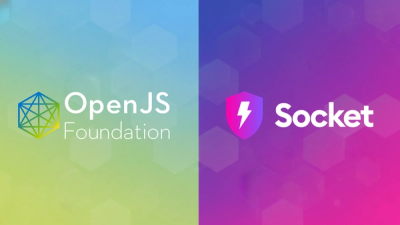
Research
SANDWORM_MODE: Shai-Hulud-Style npm Worm Hijacks CI Workflows and Poisons AI Toolchains
An emerging npm supply chain attack that infects repos, steals CI secrets, and targets developer AI toolchains for further compromise.
node-extend is a port of the classic extend() method from jQuery. It behaves as you expect. It is simple, tried and true.
Notes:
Object.assign
now offers the same functionality natively (but without the "deep copy" option).
See ECMAScript 2015 (ES6) in Node.js.Object.assign in both Node.js and many
browsers (since NPM modules are for the browser too) may not be fully
spec-compliant.
Check object.assign module for
a compliant candidate.This package is available on npm as: extend
npm install extend
Syntax: extend ( [deep], target, object1, [objectN] )
Extend one object with one or more others, returning the modified object.
Example:
var extend = require('extend');
extend(targetObject, object1, object2);
Keep in mind that the target object will be modified, and will be returned from extend().
If a boolean true is specified as the first argument, extend performs a deep copy, recursively copying any objects it finds. Otherwise, the copy will share structure with the original object(s).
Undefined properties are not copied. However, properties inherited from the object's prototype will be copied over.
Warning: passing false as the first argument is not supported.
deep Boolean (optional)
If set, the merge becomes recursive (i.e. deep copy).target Object
The object to extend.object1 Object
The object that will be merged into the first.objectN Object (Optional)
More objects to merge into the first.node-extend is licensed under the MIT License.
All credit to the jQuery authors for perfecting this amazing utility.
Ported to Node.js by Stefan Thomas with contributions by Jonathan Buchanan and Jordan Harband.
Lodash's merge function is similar to extend's deep extend feature. It recursively merges own and inherited enumerable string keyed properties of source objects into the destination object, also merging arrays and array-like objects.
Object-assign is a polyfill for the Object.assign() method which copies enumerable and own properties from a source object to a target object. It is similar to extend's shallow copy feature but does not support deep copying.
Deep-extend is an npm package that provides deep copy functionality similar to extend's deep extend feature. It allows for deep copying of the enumerable properties of one or more source objects into a target object.
FAQs
Port of jQuery.extend for node.js and the browser
The npm package extend receives a total of 22,298,041 weekly downloads. As such, extend popularity was classified as popular.
We found that extend demonstrated a not healthy version release cadence and project activity because the last version was released a year ago. It has 2 open source maintainers collaborating on the project.
Did you know?

Socket for GitHub automatically highlights issues in each pull request and monitors the health of all your open source dependencies. Discover the contents of your packages and block harmful activity before you install or update your dependencies.

Research
An emerging npm supply chain attack that infects repos, steals CI secrets, and targets developer AI toolchains for further compromise.

Company News
Socket is proud to join the OpenJS Foundation as a Silver Member, deepening our commitment to the long-term health and security of the JavaScript ecosystem.

Security News
npm now links to Socket's security analysis on every package page. Here's what you'll find when you click through.